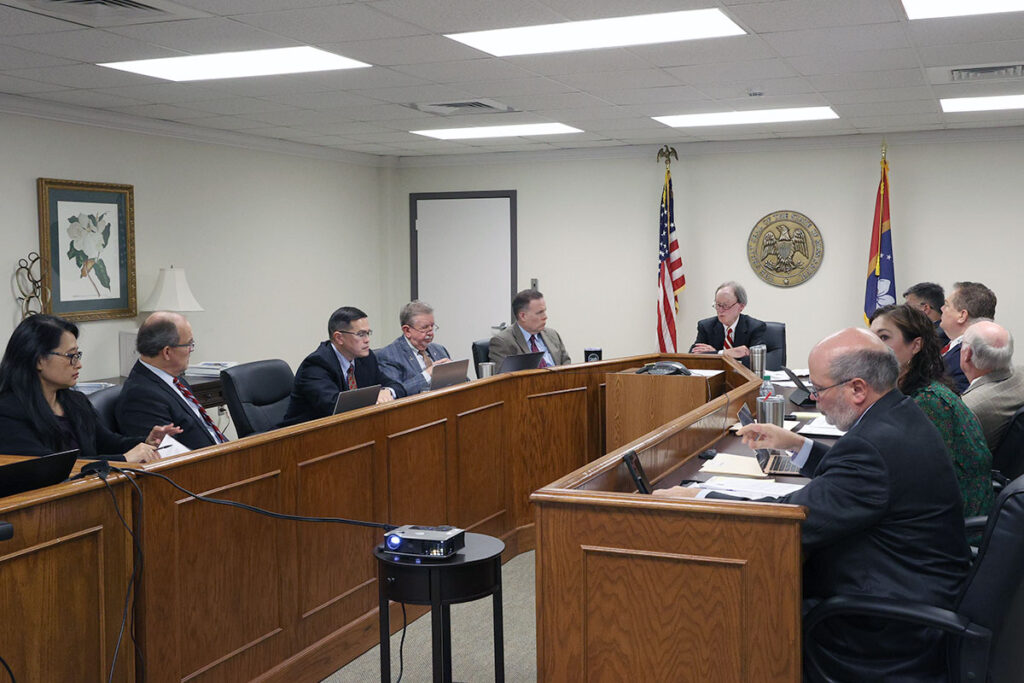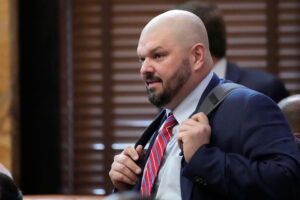The Mississippi Ethics Commission held its likely final discussion on the Mississippi Free Press’ complaint against the State House of Representatives today, restating their disagreements over the commission’s decision to declare the Mississippi Legislature not a public body under the Open Meetings Act. The Zoom stream of today’s meeting had high attendance of up to 70 viewers at one time, including representatives of multiple media outlets.
The Mississippi Free Press first filed a complaint in April 2022, after this reporter was barred from a meeting of the House GOP Caucus at the Mississippi Legislature. The caucus, which contains 75 of the 122 members of the chamber, represents a quorum of the Legislature, and is a powerful, secretive driver of key legislative agendas. Later, attorney Rob McDuff filed an additional complaint on behalf of the Mississippi Free Press.
Last week, Ethics Commission Executive Director Tom Hood recommended that the commission rule in favor of the Mississippi Free Press, writing that “it is essential to the fundamental philosophy of the American constitutional form of representative government and to the maintenance of a democratic society that public business undertaken by a quorum of the House of Representatives be performed in an open and public manner.”
But the commission overruled his recommendation 5-3, substantially rejecting the argument that the House of Representatives constituted a public body, but pushing off a final decision to the debate this week.
Stephen Burrow, who argued against the Legislature’s inclusion in the Open Meetings Act, summed up the perspective of his five fellow commission members who voted against the Mississippi Free Press’ complaint. “(The Legislature is) constitutionally obligated to keep (its) doors open,” Burrow said, referring to Section 58 of the Mississippi Constitution. It states: “The doors of each House, when in session, or in committee of the whole, shall be kept open, except in cases which may require secrecy.”
Furthermore, Burrow said, he agreed with this reporter’s complaint in principle. “I think I speak for every member of this commission that we believe that the Legislature should be open, is required to be open and that meetings of the (House Republican) caucus should be open, but that’s not what’s before us.”
“What is before us is whether or not the Legislature chose to include itself within the definition of a public body, and it’s very plain to me that while they included (legislative) committees, they excluded other committees from this for whatever reason. When the Open Meetings Act was passed in 1975, they chose not to include themselves.”
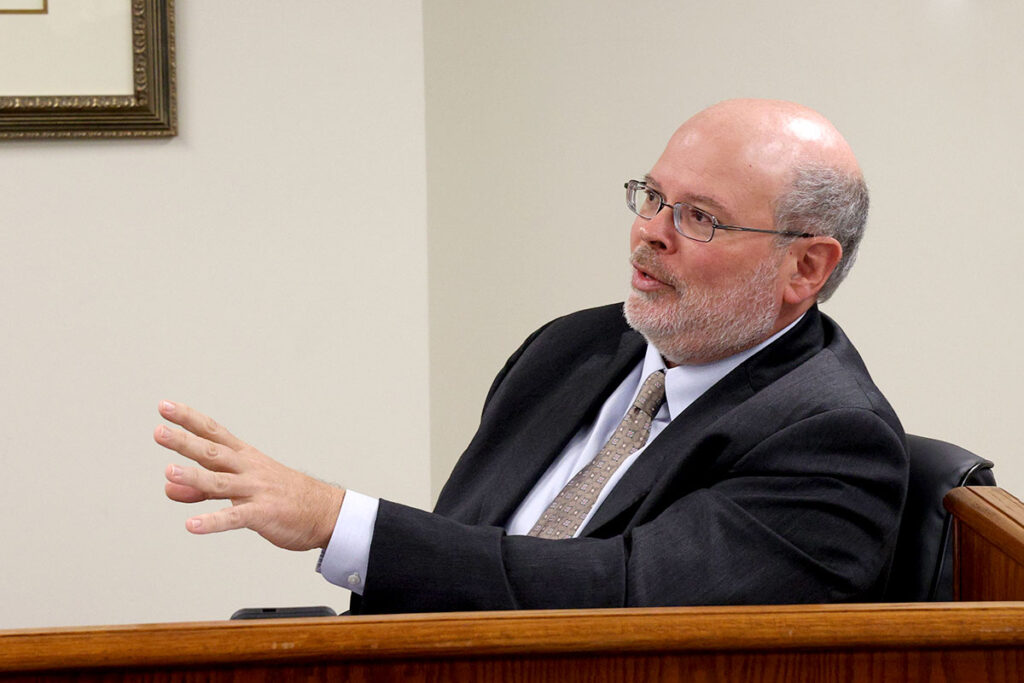
Burrow further acknowledged that the absence of the Legislature itself may stem from its basic constitutional requirement to remain open.
“That could be because they were already included and required to be open under Section 58 of the Mississippi Constitution.” But, he added, “whether a meeting of the Republican caucus or any other forum of the House or the Senate is a violation of a constitutional provision is outside the jurisdiction of the Ethics Commission. We are charged exclusively with administering statutory enactments.”
‘We Undermine That Confidence’
Commissioner Maxwell Luter criticized the decision, warning that it would undermine the credibility of the Ethics Commission itself.
“I’m very concerned at the direction we are taking—leaning in favor of the Legislature by stating the Open Meetings Act does not apply to this branch of the Mississippi State Government,” the Tylertown businessman said in his opening comments.
The content of the Open Meetings Act in full, Luter argued, could not reasonably exclude the state’s highest legislative policy-maker. “The definition (of public body) includes any standing, interim or special committee of the Mississippi Legislature. If the Legislature is not included in the Open Meetings Act, why did it find the need to list these specific bodies of this branch? Why is the judiciary singled out as an exception to the rule as well?”
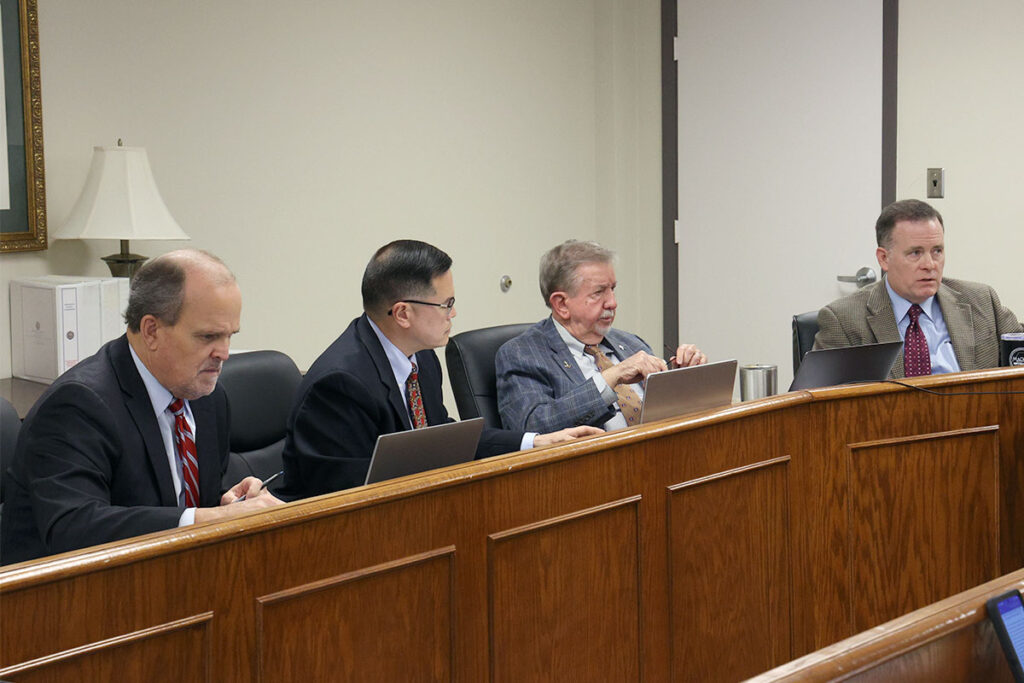
Luter stressed that taking such a narrow definition of “public body” could damage public trust. “The Open Meetings Act was created to give citizens confidence in its government and its government officials. By ruling the Legislature is not subject to the Open Meetings Act, we undermine that critical confidence so needed during these tumultuous times in our country’s history,” he said.
Joining Luter in dissent were Ron E. Crowe, formerly the executive director of the Mississippi Ethics Commission and Robert G. Waites. Rather than voting today on a draft final order, the commission is scheduled to meet again on Dec. 14 to formally accept the new recommendation.
Commission Says Open Meetings Act ‘Ambiguous’
Central to the question before the Mississippi Ethics Commission is Mississippi Code Section 25-41-3(a), which defines a public body as follows:
“[A]ny executive or administrative board, commission, authority, council, department, agency, bureau or any other policymaking entity, or committee thereof, of the State of Mississippi, or any political subdivision or municipal corporation of the state, whether the entity be created by statute or executive order, which is supported wholly or in part by public funds or expends public funds, and any standing, interim or special committee of the Mississippi Legislature.”
The proposed final draft states that the Open Meetings Act “does not expressly include or exclude the House, the Senate, or the Legislature as a whole,” even though that section does identify “any standing, interim and special committee of the Mississippi Legislature.” The draft goes on to acknowledge that the same section also includes “any other policymaking entity” in the definition of public body.
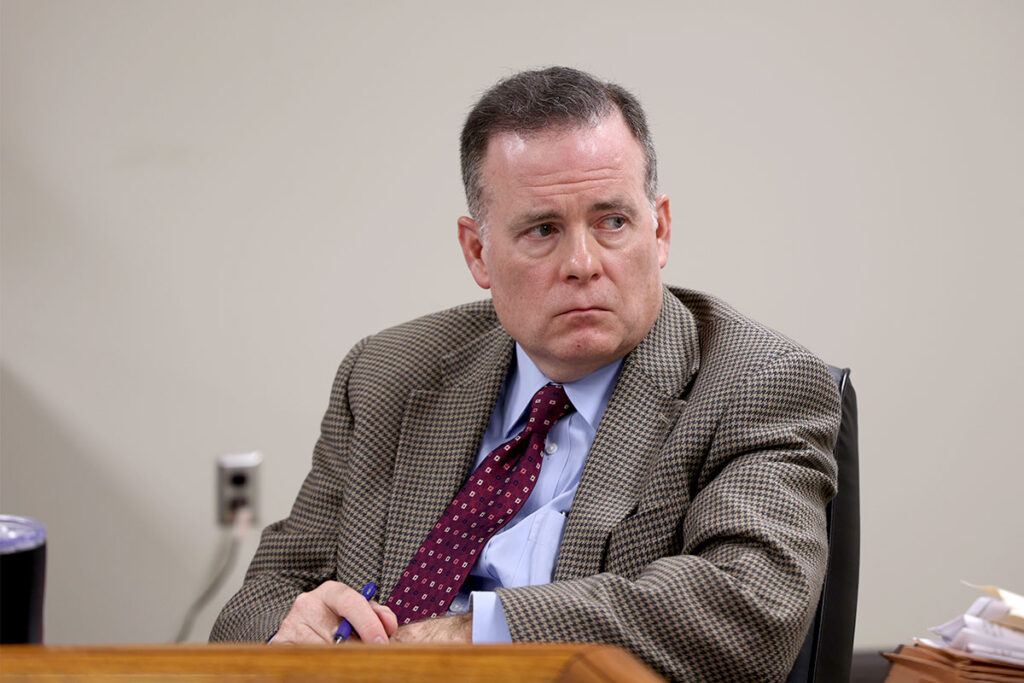
But while these sections, taken together, satisfied Mississippi Ethics Commission Executive Director Tom Hood enough to issue a recommendation in favor of finding the House to be a public body, the commission’s vote called for a new interpretation. “Consequently,” the new draft reads, “the Commission finds § 25-41-3(a) to be ambiguous on this particular issue.”
The draft also states that the language of the law strictly binds the Commission’s job, and that “the question before the Commission is not whether the Open Meetings Act should apply to the House of Representatives, but whether or not as written it does apply.”
What follows, then, is the House’s specific interpretation of the definitions, grammar and punctuation of the Open Meetings Act: “The Complainants contend the House falls within the OMA’s statutory definition of a public body since it is a ‘policymaking entity’. While acknowledging it is a policymaking body in a general sense, the House responds that only a policymaking entity which is ‘executive or administrative’ in character is a “public body” for purposes of the Open Meetings Act.”
The newest language of the draft summarizes the House’s logic as follows: “the Commission must evaluate the meaning of ‘policymaking entity’ not only in the context of the conditional, ‘executive or administrative’, but also the specific entities listed precedingly. The House is not ‘executive or administrative’, but operates as part of the Legislature, a completely separate branch of government.
Clarification: Shortly after publication, Mississippi Ethics Commission Executive Director Tom Hood clarified that the new draft order presented at today’s meeting was “not my recommendation or work product.”


